博文
中国人为何普遍不信仰上帝?外国网友这么看... | 老外看中国 ... ...
截止2017年,基督教徒有24亿561.9万,广义基督徒25亿7561.9万,注册22亿6582.4万,参加礼拜者15亿7123.5万;增长率1.32%,继续保持世界第一大宗教地位。

此外,有统计显示:这些基督信徒的主要分布区域,主要集中在欧洲、美洲及白人历史殖民区域...
显然,这些主要分布区域并不包括世界第一大人口的中国地区。
对此,就有外国网友发出了疑问:中国人,为何普遍不信仰上帝?
1、Super Poon
In history, we can''t find any nation that is more superstitious, more skeptical, more devout, more rational, and more secular than the Chinese. And No other country like China can’t be controlled by the church.
在历史上,我们找不到任何一个国家比中国人更迷信、也更怀疑、更虔诚、也更理性。也没有哪个国家像中国一样不被教会所控制。
The religious beliefs of Chinese during the past thousands of years can be summed up in one words - "Peace" (平安in Chinese). When a Chinese is in a smooth sailing, he/she basically don’t believe in gods. I have never heard that one Chinese would say “thanks the god” when he get success. Instead, he will say ”thanks my parents” “thanks my friends” “thanks my boss” and so on.
几千年来中国人的宗教信仰可以用一个词来概括——“平安”。当一个中国人一帆风顺的时候,他基本上不会去相信神。我从来没有听说过一个中国人在获得成功时会说“谢谢神”。相反,他会说“谢谢我的父母”“谢谢我的朋友”“谢谢我的老板”等等。
But when he encounters adversity that cannot be changed by himself, he will be more superstitious than anyone else. For example, one’s mother got a bad ill and may died soon if don’t have surgery, nobody can help him, even the doctor can’t have 100 percent that the surgery will succeed. Then he would probably do things like going to the temple and worship the god to beg for blessing. If his mother was cured, he would think that it was the Buddha blessed him(“上天保佑”or“菩萨保佑”in Chinese). (Of course he would thanks the doctors who do this surgery too) Once the surgery was succeed, he would feel very happy and put the Buddha behind.
但是,当他遭遇到自己无法改变的困境时,他会比任何人都更加迷信。例如,一个人的母亲得了重病,如果不做手术,可能很快就会死去,没有人能帮助他,即使是医生也不能百分之百确定手术会成功。然后他可能会做一些事情,比如去寺庙拜佛祈求祝福。如果他的母亲能痊愈,他会说上天保佑。(当然他也会感谢做这个手术的医生)但一旦手术成功了,他会感到非常高兴,然后把神抛在身后。
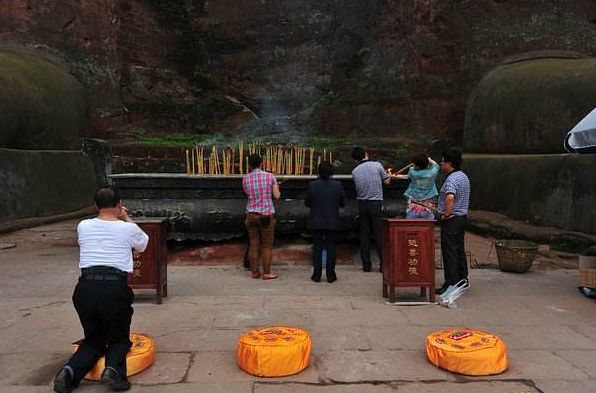
2、Emilio Trampuz
Asking something like this is exactly like asking: “Why do so many people not believe in Santa Claus? "
问这样的问题就像问: “为什么这么多人不相信圣诞老人? ”
The answer was given long ago: “When I was a child, I talked like a child, I thought like a child, I reasoned like a child. When I became a man, I put the ways of childhood behind me.”
很久以前就给出了答案: “当我还是个孩子的时候,我像孩子一样说话,像孩子一样思考,像孩子一样推理。当我长大成人后,我把童年的生活抛诸脑后。”
Most people believe in God because of their own ignorance and fear, and/or because they were brought up that way by their parents. But, once you grow up and start thinking for yourself, you see that all these holy books are just fairy tales about imaginary other-worldly “gods”, who are supposedly omnipotent and omniscient, but who never actually do anything or even show themselves.
大多数人相信上帝是因为他们自己的无知和恐惧,或者是因为他们的父母就是这样教育他们的。但是,一旦你长大并开始为自己思考时,你会发现所有这些圣书都只是关于虚构的超自然“神”的童话故事,他们被认为是无所不能、无所不知的,但实际上这些神从未做过任何事,甚至从未现身。
The problem is that millions of people never truly grow up. They never mature enough to apply reason and common sense to their blind beliefs.But a lot of people do grow up and develop common sense. Not just the Chinese, but people everywhere, in all parts of the world.
问题在于,还有数百万人从未真正长大。他们永远不会成熟到将理性和常识应用到他们盲目的信仰中。但是很多人确实长大了,并形成了常识。不仅仅是中国人,还有世界各地的人们。

3、Arthur Dayne
What people are trying to say is “Chinese people are atheists because they don’t believe in our One True Lord and God”.That’s it.
一些人试图说的是“中国人是无神论者,因为他们不相信我们唯一的真主和上帝”。就是这样的。
They are defining Atheist and Atheism as not believing in Jesus Christ, the Lord, Allah, Yahweh or whatever. It’s misinformation, wrong and not in good faith Chinese people are spiritual and pragmatic, but unfortunately some disingenuous people with ulterior motives still peddle their way :P By framing Atheists an Atheism like this they (Edited: mostly Americans!) are implying that Chinese spiritual beliefs and culture are not valid.
他们把无神论者定义为不相信耶稣基督、主、安拉、耶和华或其他什么。这是错误的说法,不是善意的。中国人崇尚精神和实用主义,但不幸的是,一些别有用心的虚伪的人仍然在兜售他们的信仰。通过这样定义无神论者,他们(编辑: 大部分是美国人!) 暗示着中国的精神信仰和文化是无用的。
4、AI Bu Lin
in a historical context the Chinese people suffered greatly under the brutality of the European nations, who raped China to feed their own greed, see the Boxer rebellion for example. Who will volunteer to want to suffer such a brutal God?
在历史背景下,中国人民在欧洲国家的残暴统治下遭受了巨大的苦难,这些欧洲国家为了满足自己的贪婪而侵犯了中国,例如义和团运动。谁会自愿忍受这样残忍的上帝呢?
Although the Chinese are not considered as believers, they are strangely also not non- believers. They are not active Buddhist, but they will not miss an opportunity to pray in any temple and stick to Buddhist rituals in some way. When it come to China, you must be careful not to generalize because you will be wrong.
虽然中国人不被认为是信徒,但奇怪的是,他们也不是非信徒。他们不是活跃的佛教徒,但他们不会错过任何寺庙拜佛的机会,并以某种方式坚持佛教仪式。谈到中国,你一定要谨慎点,不要以偏概全,因为这样你就会犯错。
5、Jan Krikke
The best answer ever give to this question came from art historian George Rowley, author of the magnificent book Principles of Chinese Painting. Rowley opened his book with the following:
对这个问题最好的回答来自艺术史学家乔治 · 罗利,他是《中国画原理》一书的作者。罗利在书的开头写道:
"We will begin with the basic contrast of spirit and matter. In the west the gulf between them has been impassable. For us spirit belongs to the life of prayer and worship, matter is the concern of science.
“我们将从精神和物质的基本对比开始。在西方,他们之间的鸿沟已经无法逾越。对我们来说,精神属于生活中的祈祷和崇拜,物质属于科学的关注。
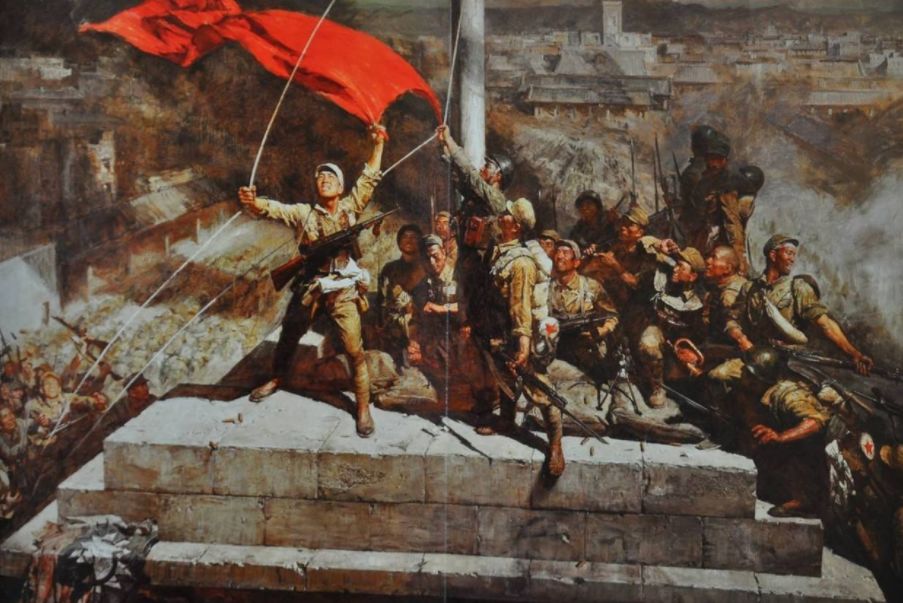
This has directed our art to the extremes of religious meaning and naturalistic representation. The Chinese, by not carrying the empirical method far enough, failed to develop the natural sciences; and, by not pursuing the nature of spirit to the ultimate personal God, they never evolved a real religion in our sense of that word. Instead, the Chinese created a unique conception of the realm of the spirit which was one with the spirit of matter.
这使得我们的艺术走向了宗教意义和自然主义表现的极端。中国人,由于没有足够的实证方法,未能发展自然科学;由于没有追求精神的本质到最后的唯一神,所以他们从来没有发展成为我们意义上的真正的宗教。相反,中国人创造了一种独特的精神境界的概念,这是一种与物质联系的精神。
This meant that their painting would never become as religious, imitative, or personally expressive as our painting; and it also meant that art would become the prime vehicle for man''s most profound thoughts and feelings about the mystery of the universe. This unique conception of spirit and matter was embodied in the notion of Tao."
这意味着他们的绘画永远不会像我们的绘画那样宗教化、模仿化或个人化;这也意味着艺术将成为人类对宇宙奥秘最深刻的思考和感受的主要载体。这种独特的精神与物质观念体现在“道”的观念中。
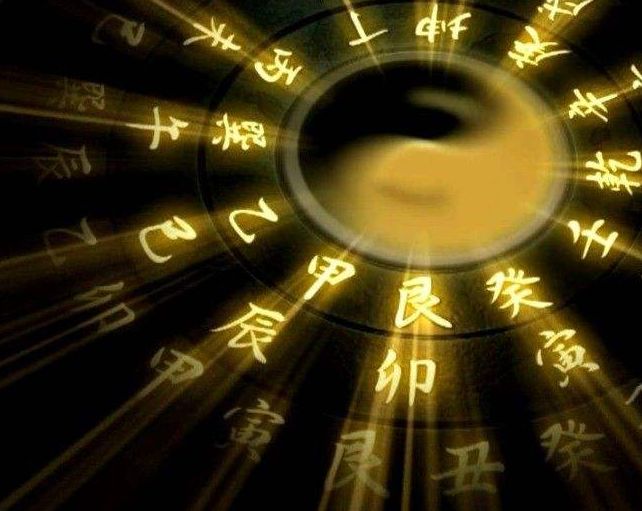
6、Cedric
China "appears" to be Atheist, that is because Chinese don''t have a strong and domination religion, so there are far less religious fanatics in China.
中国“显得”像无神论者,那是因为中国人没有一个强大的、统治性的宗教,所以中国的宗教狂热者要少得多。
Historically Chinese are too rational to move into a monotheism society (one-true-god). It is very similar to Roman''s early resistance to Christianity. Roman are very practical and rational by nature, and they find no extra utilitarian from just one god to pray to, instead of many gods to pray to.
从历史上看,中国人太过理性,无法进入一神论社会(一个真正的上帝)。这与罗马人早期对基督教的抵抗非常相似。罗马人的本性是非常实际和理性的,他们发现没有额外的功利主义,只向一个神祈祷,而不是向许多神祈祷。
7、James
the emperor never bent its will to any religion, not vastly at least, in other word the power of dynasty, which is the power of human, never being ruled by the power of god, which is religious organizaitons. so they didnt have a chance to push the religious belief into a cultural commonality, the best they can do is influence in some way.
皇帝从来没有屈服过任何宗教,至少没有很大的屈服过,换句话说,王朝的力量,也是人类的力量,从来没有被神的力量所统治,神的力量是宗教组织。所以他们没有机会把宗教信仰融进文化里,他们能做的就是通过某种方式施加影响。
So the Chinese culture is built, performed and passed on by human.
所以中国文化是由人类创造、执行和传承的。

8、Zachary Adam Erskine
About 2% of China does believe in the Christian God. About 15 percent of the population is Buddhist, which rejects the notion of a creator deity.The majority of China, about 80%, is Taoist, which also does not believe in a supreme creator but rather that our universe and its laws sprang forth from the Tao, literally “The Way”, a sort of natural order to things, that is not worshipped or considered a god.
大约2% 的中国人相信基督教的上帝。大约15% 的人口是佛教徒,他们反对创造神的观念。中国的大多数人,大约80% ,是道教徒,他们也不相信至高无上的造物主,而是相信宇宙及其法则来自于道,字面意思是“道路”,一种对事物描述的自然秩序,并不崇拜或认为是神所做。
Within certain sects of Taoism there are 3 figures, not unlike the Holy Trinity or the Hindu Trimurti, who are considered primordial emanations of the Tao, and the origins of all sentient beings. However, belief in these supreme deities is not a requirement of all branches of Taoism, and they often do not regard deities in the same way that we do in Western thinking, or even in Hinduism.
在道教的某些教派中,有三个人物,与基督教的三位一体或印度教的特里莫尔蒂人没有什么不同,他们被认为是道的创始人,以及所有众生的起源。然而,对这些至高无上的神灵的信仰并不是所有道教派别的必要条件,而且他们往往不会像我们的西方思想中,甚至如印度教中那样看待神灵。
9、Xander Tisdale
This falls onto the vast difference between China and the less sinicized world.In the west there is no way to distinguish the region and its people from religion. The basic foundation of every last western society is religious whether it be the prevailing Abrahamic religions or any of the now dead religions that guided the most powerful and influential nations in the west from the Egyptian pantheon to the Greco-Roman pantheon, Norse pantheon or Zoroastrian pantheon.
这是由于中国和中国化程度较低的世界之间的巨大差异,在西方,没有办法把这个地区及其人民与宗教区分开来。每一个西方社会的基本根基都是宗教的,无论是盛行的亚伯拉罕宗教,还是任何现在已经死去的宗教,它引导着西方最强大和最有影响力的国家从埃及的万神殿到格列柯罗马的万神殿、挪威的万神殿或琐罗亚斯德的万神殿。
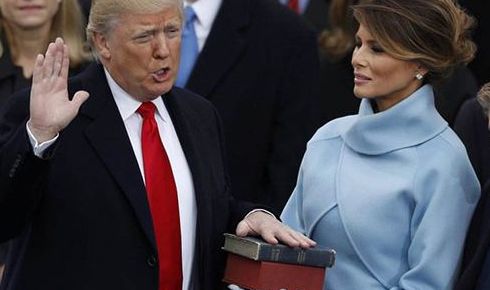
China on the other hand and the side of the world it had influenced has never really had a solid foundation of religion. Yes as other answers have pointed out China has minor religious rituals and superstitions. But unlike the west that’s as far as they had ever gotten. The little altars you see at Chinese restaurants the Qingming ritual of veneration of the dead and speaking about spirits in nature causing unexplained disruptions to their daily routine have never really influenced eastern development.
另一方面,中国和它所受影响的世界从来没有真正的宗教基础。是的,正如其他答案指出中国有一些小的宗教仪式和迷信。但与西方不同的是,这是他们所能做到的。你在中餐馆看到的小祭坛,清明祭奠死者的仪式,以及谈论大自然中的鬼魂,对他们的日常生活造成无法解释的干扰,从来没有真正影响到东方的发展。
Instead that void was filled by philosophy, discipline and respect. Instead of wondering where they came from and who put them on Earth to serve what purpose Chinese society was more concerned about how to maintain their livelihoods and improve themselves as individuals.
相反,这种空虚被哲学、纪律和尊重所填补。中国社会更关心的不是他们来自何方,是谁把他们放在地球上为什么目的服务,而是如何维持他们的生计,改善他们个人的生活。
Things like this also explain the misconception of the west and of the east when they describe each other as the west is individualistic and the east is communal. When speaking about a superior being creating you western ideology seems to focus on the individual and that superior being.
类似这样的事情也解释了为什么当他们相互描述西方是个人主义而东方是集体主义的时候,所产生的误解。当谈到上帝创造你的时候,西方意识形态似乎把重点集中在个人和那个上帝。

On the other hand eastern ideology delves heavily into rank and the etiquette expected at each level making it seem like they focus on the group. But the reality is actually the opposite.You notice the organization of the church and the theocracy. Specifically think about what it meant to be excommunicated from the church in the western world. That’s communal in a nutshell. You must conform to the beliefs of the majority or face disownment.
另一方面,东方的意识形态深入研究了等级和每个阶层的礼仪,使得他们看起来更关注群体。但事实恰恰相反,你会注意到教会和神权政治的组织,特别要想想被西方世界的教会逐出教会意味着什么。简而言之,这是集体的,你必须遵守大多数人的信仰,否则就要面对政府的否定。
On the other hand while eastern cultures teach the importance of knowing one’s place it’s the fact that it speaks to the one and their individual responsibilities. These responsibilities expand to the group but not because of its importance to the person but the importance of maintaining peace and harmony in the society which directly affects the individual. You can see this from things like the Chinese imperial exams. This is a way for any commoner to rise to a rank of power based on their merits and study.
另一方面,虽然东方文化教导人们了解自己位置的重要性,但事实上,这些位置则反映了个人的责任。这些责任扩大到集体,但不是因为责任对个人的重要性,而是为了维护社会和平与稳定,这又直接影响到个人。你可以从中国的科举考试中看到这一点。这是任何一个平民都可以根据自己的功绩和学习上升到权力高位的一种方式。
Another example of this is how the order of precedence works. In the west a monarch was the oldest surviving child of the previous monarch and would pass the crown to the oldest surviving of his children. This is why in most governments there is a clear list showing the next in line in case the previous rank dies. But in China this isn’t the case.
另一个例子优先顺序的运作方式。在西方,现任君主是前任君主的大儿子,然后他会把王位传给在世的大儿子。这就是为什么大多数国家的政府都有一个清晰的列表,列出下一个人选,以防前一个人选死亡。但在中国,情况并非如此。
Yes it is very likely the oldest child will be the next emperor but that all depends on his merits. In China most successive rulers won favor from the old guard based on his actions before assuming the crown. The previous emperor must decide which of his children shows the most promise and then names him the heir apparent.
是的,大儿子是很有可能成为下一任皇帝,但这一切都取决于他的功绩。在中国,大多数历代统治者在登基之前,都会凭借自己的行为赢得守旧派的好感。前任皇帝必须决定他的哪个孩子最有前途,然后任命他为合法继承人。
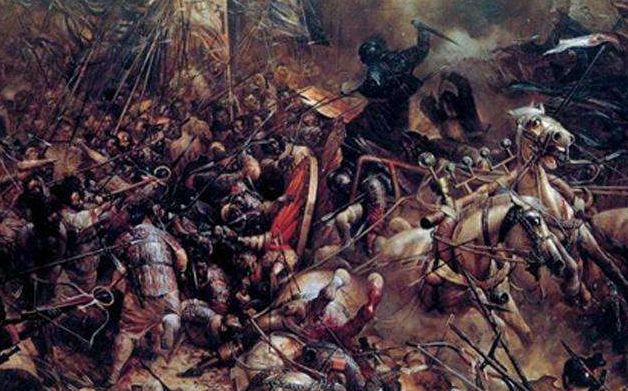
This is also why in the rare event this doesn’t happen there is immediately a power struggle as different possible successors rally supporters to claim the throne. So while the west has a clear and familial hierarchy system in place and nobody can jump the line China’s is a system of individuals proving their mettle and becoming favored by the reigning emperor and his regime.
这也是为什么在这种罕见的情况下,发生权力斗争的原因,因为不同的获选继任人会集结支持者们来争夺皇位。因此,尽管西方有一个清晰的家族等级制度,没有人能够越界,但中国是个人证明自己的勇气,并得到现任皇帝及其政权青睐的制度。
All of this explains what each side believes in. You can simplify it as the west believes in a god while the east doesn’t but really what the west believes in is a power above themselves which can keep the system in order. It keeps a world of ever increasing entropy behind a wall of organization that everybody can follow and so going against that makes you an agent of chaos which needs to be cast out. What the east believes in is themselves in a system of rights and responsibilities they’ve set up where any one of them can prove their worth to rise in power and then provide the group a better way to adapt to an ever changing world.
所有这些都解释了双方的信仰。你可以简化这种说法,因为西方相信上帝,而东方不相信,但实际上西方相信的是一种凌驾于自身之上的力量,这种力量可以维持系统的秩序。它在每个人都可以遵循的组织之墙后面,保持着一个不断增加的熵世界,因此违背它,你就混乱的代理人,需要被驱逐出去。而东方人所相信的是他们自己建立起来的权利和责任体系,在这个体系中,他们中的任何一个人都可以证明自己的价值,提升自己的权力,然后这个人为这个群体提供一个更好的方式来适应不断变化的世界。
毫不讳言,对于外国网友“Xander Tisdale”的此番论述,老铁表示赞同:
西方相信的是一种凌驾于自身之上的力量,这种力量可以维持系统的秩序。它在每个人都可以遵循的组织之墙后面,保持着一个不断增加的熵世界,因此违背它,你就混乱的代理人,需要被驱逐出去。而东方人所相信的是他们自己建立起来的权利和责任体系,在这个体系中,他们中的任何一个人都可以证明自己的价值,提升自己的权力,然后这个人为这个群体提供一个更好的方式来适应不断变化的世界。
一种是“信他”、一种是“自信”,说这两种截然不同的选择懦弱也好、自负也罢,但是我们不能否认的是,正是这种不一样的选择,从根源上塑造了两个社会的宗教信仰和社会价值。
这,大概就是文化与社会形态多样性的根源。
免责声明:本文中使用的图片均由博主自行发布,与本网无关,如有侵权,请联系博主进行删除。




